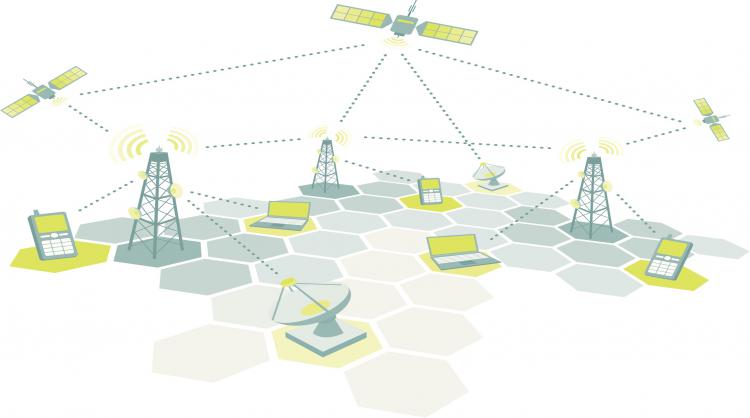O1 Communications Takes Aim at T-Mobile Over Direct Connections Refusal
January 26, 2018 | by Andrew Regitsky

A couple of weeks ago, we became aware of a brewing industry dispute between a diverse group of small service providers and the major national wireless carriers. The small carriers claim that wireless companies are refusing to directly connect with them to terminate traffic or at least certain types of terminating traffic such as wholesale. Instead, wireless carriers are forcing this traffic to be routed through an intermediate carrier partner or affiliate, and as a result, the originating providers can no longer can terminate traffic to these wireless carriers on a bill-and-keep basis.
The small carriers believe that by forcing carriers to send terminating traffic through the wireless company’s intermediate carrier partner they are engaging in an arbitrage scheme. These intermediate carriers assess terminating minute of use access charges and share these revenues, either directly or indirectly, with their wireless partner.
T-Mobile, is the wireless company the small providers believe is the chief offender when it comes to this practice. The mobile provider has defended itself by asserting that it is willing to directly connect with any carrier with sufficient traffic volume to justify the cost of a direct connection. In addition, it argues that a direct connect requirement would codify the historic switched access regime instead of encouraging a further move to bill-and-keep and incenting the transition to an Internet protocol (IP).
These "explanations" have now been taken to task by the diverse provider O1 Communications. O1 is threatening to file a complaint against T-Mobile and claims its defense for refusing direct connections is "misleading and inaccurate."
Here is what O1 is alleging:
First, T-Mobile's assertion that it "does not refuse to provide direct connections" is misleading, because-as T-Mobile itself admits-it is only willing to establish a direct connection with other carriers, including 01, solely for the exchange of "retail" traffic. As such, T-Mobile admittedly does not permit direct connections to be used for wholesale traffic (e.g., voice traffic carried by intermediate providers for other service providers).
Second, while T-Mobile claims that under its latest agreement with Inteliquent that T-Mobile “does not receive any revenue in the form of payments, credits, or other type of benefit,” T-Mobile conspicuously minimizes the fact that under the original 2015 agreement with Inteliquent that T-Mobile did receive credits. Moreover, T-Mobile has not produced its current agreement with Inteliquent on the record so that the Commission and parties may evaluate the validity of T-Mobile’s claim.
Third, T-Mobile’s assertion that its interconnection decisions are driven by its goals to “provid[e] the highest quality service…and expedit[e] the IP Transition” is specious. Sending traffic indirectly, rather than directly, does not improve the quality of service. Rather, indirect routing degrades the quality of the service. Moreover, contrary to T-Mobile’s claims, because O1’s prior direct connects to T-Mobile that it disconnected were efficient, IP-based connections that complied with T-Mobile’s POI [Point Of Interface] requirements, T-Mobile’s actions have “turned the clock back” on ICC [inter-carrier compensation] reform and direct IP interconnection.
Lastly, T-Mobile’s claims that it does not accept wholesale traffic due to concerns with fraud and robocalls are disingenuous for two reasons. First, as noted above, T-Mobile is receiving the same traffic indirectly through Inteliquent. Second, fraud and robocalls are not likely to be more prevalent with wholesale traffic than retail traffic, and T-Mobile has failed to provide any evidence demonstrating otherwise. (FCC Docket 10-90, Ex parte letter from O1 Communications, filed January 11, 2018, at pp. 1-3).
O1 concludes that:
[T]he Commission should immediately open an investigation into this improper conduct, and should extensively question T-Mobile and Inteliquent on their exclusive arrangement and T-Mobile’s disconnections of direct connects. In the meantime, in order to prevent imminent harm to competition and promote the public interest, O1 urges the Commission to stop such ongoing abuse by immediately issuing an order that adopts the proposed Direct Connect Rule. (id., at 3).
While we don't know if O1's contentions are accurate, it would be outrageous for T-Mobile to refuse direct connections for wholesale traffic. For one thing, it would be difficult for any terminating carrier to distinguish terminating retail traffic from wholesale traffic. Moreover, refusing to directly connect wholesale traffic harms an entire segment of the industry (such as alternative tandem providers) and their customers without providing any particular industry benefits. If O1 is correct, the Commission should immediately establish a direct connection rule requiring all terminating carriers to directly connect with any company with traffic (of any kind) sufficient to make it economical.

